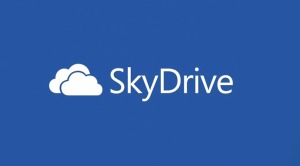 As you may or may not know kids, I sometimes describe myself as a tech boss by day and nerd hero by night. So rightfully so tech and the internet play a pretty heavy role in my day and I spend a lot of time, as one has put it before, “absorbing the internet.” And recently the news I’ve been absorbing has progressively meant big changes in the way software works (and I’m counting games in there too). And change always means that people are going to be resistant to it. And that’s not always off the mark, as a lot of stuff seems pretty anti-user these days. We’ve seen our next-gen console manufacturers turn on us with always on DRM and talk of hard-locking game media to consoles and user accounts in recent history. And now, after talking about blocking games on the next Xbox console, Microsoft is riling users up in their Office line of products.
As you may or may not know kids, I sometimes describe myself as a tech boss by day and nerd hero by night. So rightfully so tech and the internet play a pretty heavy role in my day and I spend a lot of time, as one has put it before, “absorbing the internet.” And recently the news I’ve been absorbing has progressively meant big changes in the way software works (and I’m counting games in there too). And change always means that people are going to be resistant to it. And that’s not always off the mark, as a lot of stuff seems pretty anti-user these days. We’ve seen our next-gen console manufacturers turn on us with always on DRM and talk of hard-locking game media to consoles and user accounts in recent history. And now, after talking about blocking games on the next Xbox console, Microsoft is riling users up in their Office line of products.
When you buy most kinds of software, according to most end user license agreements, it’s yours. My current copy of Microsoft’s Office 2007 Pro belongs to me. I installed on my laptop back in 2007. Since then I’ve upgraded my laptop twice, and was well within my rights to install Office again on those replacements, which I did. Hell, I’m using it to write this article right now. And that’s how retail software for consumers works most of the time. But Microsoft’s decided to abandon their existing retail model in their 2013 line.
 Instead of the example I gave you above, they’re implementing a 1-license, 1-PC rule. What that means is that if you buy a license for Microsoft Office 2013 and install it on your computer, that’s it. Upgrade to a newer machine? Aww I’m sorry kids, Office can’t come with you to play. You’d have to buy another license for your next computer. So let’s look at my personal situation with Office on my laptops above. If this rule was in play in Office 2007, I would have have had to buy a second license for that laptop replacement, then a third license for the one I’m using now. And Office Pro (seriously, damn my need for MS Access) will set one back about $350-400 per license.
Instead of the example I gave you above, they’re implementing a 1-license, 1-PC rule. What that means is that if you buy a license for Microsoft Office 2013 and install it on your computer, that’s it. Upgrade to a newer machine? Aww I’m sorry kids, Office can’t come with you to play. You’d have to buy another license for your next computer. So let’s look at my personal situation with Office on my laptops above. If this rule was in play in Office 2007, I would have have had to buy a second license for that laptop replacement, then a third license for the one I’m using now. And Office Pro (seriously, damn my need for MS Access) will set one back about $350-400 per license.
That’s over a thousand bones, brah.
ComputerWorld confirmed this with Microsoft, so there’s not exactly room for speculation on whether or not this’ll “actually happen.” But the really scary part is how Microsoft responded when they were asked about replacing a broken laptop. They didn’t note it as an exception. They didn’t say “Naw man, we wouldn’t do that to you!” They said the two words that lead me to believe the worst case scenario is probably true – “No comment.” Well damn. And with all the tech and software they have across their portfolios, they definitely have the means to enforce that.
Let’s look at the direction Microsoft is going – everything is moving from boxed software to cloud and online services, and everything is ruled through the Microsoft ID. Microsoft ID’s link up with Xbox Live accounts, and the next Xbox will stream games with an always-on connection. Not only the Xbox, but Windows 8 integrates a Windows Live ID to link itself into every part of the OS and your digial world. And they love convincing you to use SkyDrive. It would be extremely easy for them to map an activated license key to a Microsoft ID, with an “install count” or “activation count” attached to it, leaving users with little recourse.
 In that same line of thought, it looks like Microsoft is pushing their online and cloud based agenda, and through this move are trying to get people to start using their subscription-based Office 365. Instead of buying licenses for every machine you need to install your retail copy on, the user signs up subscription style, paying $99 per year to use the cloud based office service. Given my laptop scenario above over 7 years, the subscription plan would have only costed me $700 instead of over $1,000. So it sounds pretty good compared to the 1 copy / 1 PC version right? Well, not really. Assuming that you do in fact buy a copy of Office whenever you upgrade your PC or whenever a new version of Office comes out, sure, the subscription might save you money. But going back to my laptop scenario, here’s what my cash outlay options are/were:
In that same line of thought, it looks like Microsoft is pushing their online and cloud based agenda, and through this move are trying to get people to start using their subscription-based Office 365. Instead of buying licenses for every machine you need to install your retail copy on, the user signs up subscription style, paying $99 per year to use the cloud based office service. Given my laptop scenario above over 7 years, the subscription plan would have only costed me $700 instead of over $1,000. So it sounds pretty good compared to the 1 copy / 1 PC version right? Well, not really. Assuming that you do in fact buy a copy of Office whenever you upgrade your PC or whenever a new version of Office comes out, sure, the subscription might save you money. But going back to my laptop scenario, here’s what my cash outlay options are/were:
- If 1 license / 1 PC was in effect back then : $1200 ($399 x 3 laptops)
- If subscription was in effect back then: $700 ($99 per year for 7 years)
- What the actual cost was: $400 (1 copy of Office 2007 used over and over)
Why? Because I don’t buy every single new version of Office that comes out. One one machine I’m still happily using Office 2003, as I have been for a decade. I own zero copies of Office 2010. And the same is going to be true with a lot of people and a lot of small to midsize businesses. Office 2003 will be used up until the last day in April 2014 when it’s no longer supported, because that means $400 per user can last for 10 years. And $40 per year is far cheaper than any current option Microsoft offers. So there do exist a number of scenarios where this will hurt the user. Ideally I would buy a copy of Office 2013 Pro, and run it for another decade.
Because I’m a user, not a revenue stream with a face.
Tushar Nene
Staff Writer
@tusharnene













